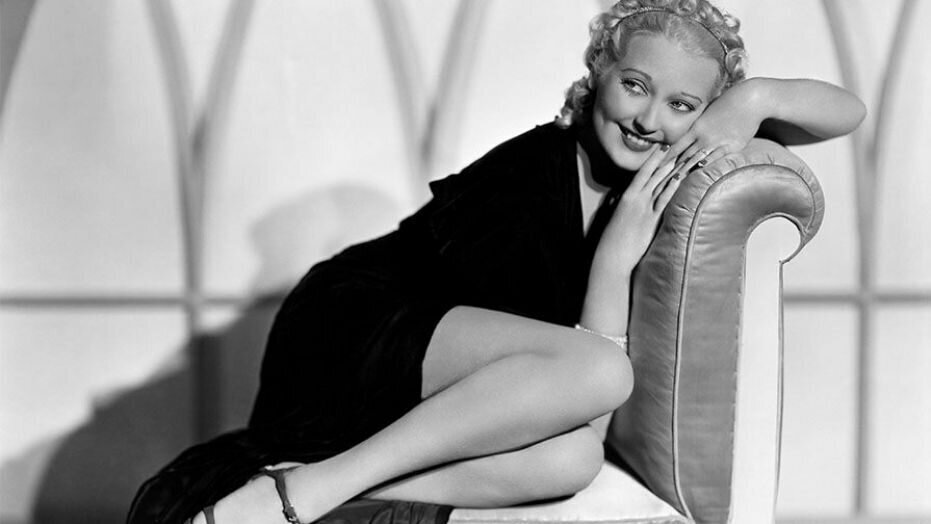Death in Paradise: Thelma Todd
Getty Images
The decade's most renowned Coroner's case, however, involved one of the decade's most successful actresses. A wise-cracking, blonde bombshell, Thelma Todd excelled at a bawdy brand of slapstick that made her a favored leading lady in Marx Brothers and Laurel and Hardy films. At 29, the former Massachusetts school teacher was enjoying all the frills of celebrity. She lived with ex-film director/producer Roland West and they opened a very successful cafe named "Thelma Todd's Sidewalk Cafe," which drew a swanky film industry clientele.
It all collapsed early Sunday morning, December 16, 1935, when she was found dead in her car in the garage she shared with West, enveloped in a cloud of car exhaust. The autopsy report, written by surgeon A.F. Wagner, found Todd's blood "to contain 75 to 80% carbon monoxide saturation." Her brain tissue had only 0.13 per cent ethanol, which suggested she was not very intoxicated. There were drops of blood in her nose when maid May Whitehead found her, slumped over, door open, engine of her powerful, 12-cylinder Lincoln still running.
The Coroner's inquest on Thelma Todd, more than 110 onionskin transcript pages in length, raises questions about both suicide and foul play, a definitive summary for one of Hollywood's greatest unsolved mysteries.
West's testimony in the inquest was shaky and, coupled with the ambiguity of their relationship, he became suspect. West told the Coroner's Jury that he slept in a separate room with a sliding door. He was asked, in a more civil and indirect 1935, if he was "an intimate friend" of Todd's and only admitted to being Todd's business partner. West had known her four years and had put up the property and high quality restaurant equipment to get the cafe going. Ironically, he'd bolted the one outside door that Todd had the key to for that night, which would have let her into the upper living area, above the cafe.
However, after driving Todd home after a party at approximately 3:15 the morning, chauffeur Ernest Peters offered, as was his custom, to walk Todd up to her door from the Roosevelt Highway (now called Pacific Coast Highway) in Pacific Palisades. The normally cheery, talkative Todd had said nothing the entire trip and moodily replied, "No, never mind. Not tonight." It was at least 300 feet uphill and she never walked it alone. She was also subject to fainting spells.
Could Todd have committed suicide after being further disheartened by not getting into her own home? The keys were always left in the ignitions of both cars. But she had been locked out before and that time, she'd broken a window and awakened a sleeping West.
Indeed, it had been a cold, windy night in the Palisades. Did Todd knock on the door, then march up to the garage, start the engine, perhaps to drive to her mother's, ten minutes away in Santa Monica, and then fall asleep?
Bruce F. Clark, captain in the LAPD and first detective on the case, told the inquest questioners that there were no signs of struggle, no bruises on Todd's body. At the same time, there was no note and no motive for suicide.
Rudolf Shafer, West's brother-in-law and manager of the cafe, reinforced the positivity of Todd's life at the time. He verified her joy for her recent Christmas shopping as well as her little-known plans to expand the upper floor to accomodate the booming business.
Related to these unfulfilled plans were the post-mortem efforts of Todd's attorney. He believed the underworld was responsible and requested a second inquest. His theory was that mobster Lucky Luciano proposed that Todd convert her cafe into a secret gambling parlor, and when she refused, Luciano unleashed his vengeance. The inquest request was declined.
Could jealousy as a spurned/potential lover have been a motivational factor for West? Certainly, he contradicted himself in testimony. West insisted he heard running water in Todd's bathroom around 3:30 a.m. but did not find her in her room when he arose later in the morning. He then revised his statement and claimed Shafer told him the water noise "could have been the carbonator that pumps water to the fountain," downstairs in the cafe. Also unconvincing was West's initial assertion that his dog began whining just before the water sound and "never" whined normally. Some pages later, he changed his words, saying his dog whined every time its blanket came off.
A final, supernatural twist on this complex tragedy was the testimony of Todd's friend, Mrs. Wallace Ford. She claimed she'd received a call from Todd on Sunday afternoon, around 4:30 p.m. Todd had already been invited to a large party that had begun at 3 p.m. Todd, identifying herself on the phone by the nickname Ford had coined, "Hot Toddy," asked if she could bring a guest. Ford inquired if the guest was a girlfriend. The fun-loving Todd would not reveal any more than the guest was male: "I want to have the fun of seeing your face when I come through the door."
But Todd never arrived because, according to Coroner's Surgeon Wagner, she was dead sometime between 4 and 5 that morning. Even more curious, LAPD officer A.R. Kallmeyer, in the briefest appearance in the inquest, told those assembled that the phone records from Todd's home revealed no calls to Ford that day.
Recently but amicably divorced, Thelma Alice Todd Di Cicco was 29 years, 4 months and 17 days old, when she died under the most mysterious of circumstances.
(Excerpt from Death in Paradise by Brad Schreiber and Tony Blanche)
